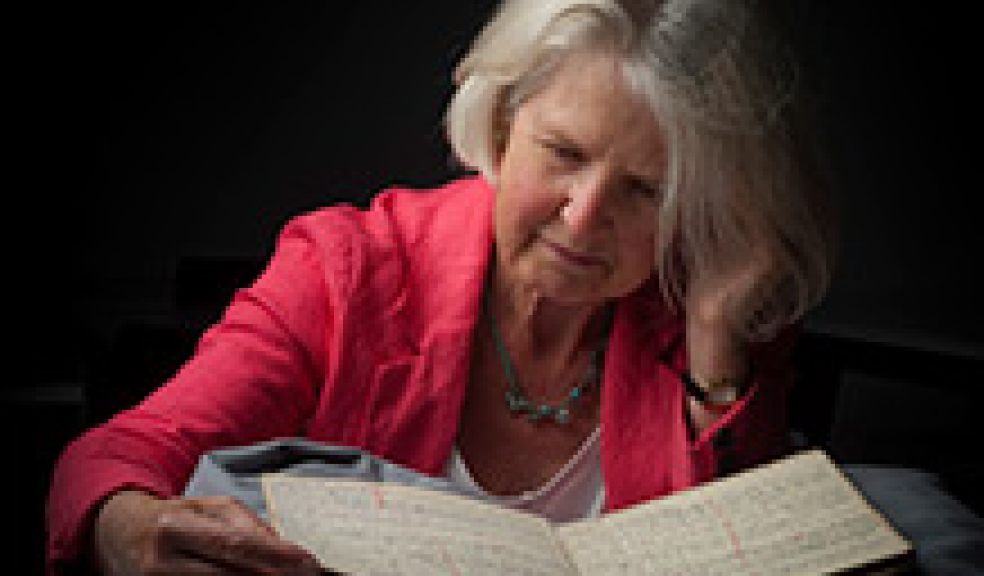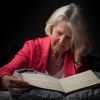
Golding's archive given to university
Lord of the Flies, the classic novel by William Golding, marks the 60th anniversary of its publication today (17 September).
The same day, a significant part of Golding’s archive, including the manuscript of his most famous novel, will be consigned to the University of Exeter on long-term loan.
This will be the first time that academics, students and members of the public will have extensive access to the drafts of Golding’s published novels, providing the opportunity to see and study in detail the workings of the Nobel Laureate.
Lord of the Flies is often used as a reference for disaffected youth; most recently the story was compared to a young offenders’ institution where incidents of high levels of bullying and violence were reported.
The novel’s exploration of the dark side of human nature, seen through the experiences of a group of boys on a desert island who quickly descend into primitive behaviour, has long since captured the imagination of school students, and remains a staple on the national curriculum.
This disturbing tale has also been adapted for film twice, and the University of Exeter’s Special Collections archives hold letters from Golding about the novel and the making of Peter Brook’s film in 1963. The appeal of Lord of the Flies remains strong, with the creation of a stage play and the recent popularity of a contemporary dance sell-out tour by Matthew Bourne’s New Adventures Dance Company.
Having achieved worldwide success with his first novel, Golding went on to publish a dozen more novels, a play, a book of short stories, two collections of essays and a travel book. He won the Booker Prize in 1980 for Rites of Passage, became a Nobel Prize winner in 1983, and was knighted in 1988.
The University of Exeter will hold in archive most of the manuscripts of the published novels and short stories.
They have been entrusted to the University by Golding’s daughter Judy Golding, who explains:“The Golding family wanted the papers to be carefully preserved and kept safe, as we believe they will be at the University of Exeter. We also believe that it’s time for readers to see something of the process that produced these works.
"There’s a sense in which that process is a very intimate one, but Lord of the Flies has spent sixty years in the public domain, so its final form is very well established.”
The Golding manuscripts will sit alongside literary papers from the likes of Agatha Christie, John Betjeman, Ted Hughes and Daphne du Maurier, which form part of the University’s archive of South West writers. Golding was born in Newquay, Cornwall, and he and his wife spent their final years in the county of his birth at Perranarworthal near Falmouth.
Dr Christine Faunch, Head of Heritage Collections at the University of Exeter, said:“This new addition, which includes drafts of Golding’s most influential works, will represent our first Nobel Laureate in the South West Writers’ Archive and we are really grateful to the family for choosing the University of Exeter.”
Tim Kendall, Professor of English at the University, credits Golding for having turned him into an enthusiastic reader. When he was in his early teens, his mother brought home a library copy of Golding’s fifth novel The Spire - now transformed into an audiobook by Benedict Cumberbatch - and he was hooked: “I finished it in one sitting, and immediately started again. It remains my favourite novel. It is a great honour for the University to house Golding’s archives. I hope that the deposit of Golding’s papers will bring renewed attention to later works as well as Lord of the Flies.”
He added:“It is wonderful that at the 60th anniversary of Lord of the Flies, we can trace its origins in manuscripts and letters which still bear disparaging comments by publishers’ readers, one of whom dismissed as ‘Rubbish and dull’ the book which would influence everyone and everything from Stephen King to The Simpsons.”
Coinciding with the 60th anniversary of Lord of the Flies, and the long-term loan of Golding’s papers to the University of Exeter, a special commemorative e-book is being published by William Golding Ltd to chart the impact of Golding’s first novel across the world. Contributions include an essay by Judy Golding on her father’s famous novel, as well as short thoughts, artwork, photography and submissions from schools. The e-book will be available from the William Golding website on 17 September 2014.













